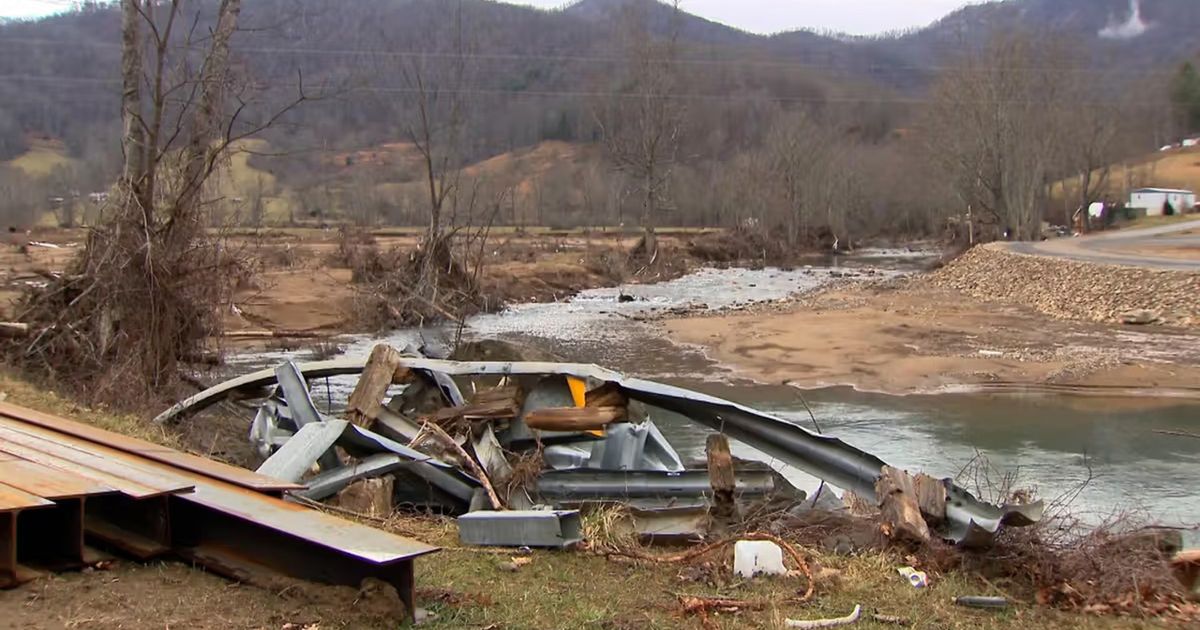RALEIGH, N.C.—From hurricanes to crippling winter storms,
the post-natural disaster themes from those impacted are familiar.
Aid is too slow, and there’s not enough.
“We really could use help. It’s a gargantuan task to try to
rebuild our town,” Hot Springs community organizer told WRAL News after Hurricane
Helene hit the North Carolina mountains in 2024.
And what little aid there is, sometimes falls into the hands
of scammers. That was an issue after the California wildfires and a national
issue when Covid relief funds were made available during the pandemic.
“Any time there’s a natural disaster, the criminals come
out,” said Haywood Talcove, the Chief Operating Officer for LexisNexis Risk
Solutions, Government group.
Talcove became a fraud watchdog after criminals used
Artificial Intelligence to steal his father’s life insurance check.
“The topic is personal to me,” he said.
Talcove predicts the problem is only going to get worse with
the use of artificial intelligence that allows scammers to easily create fake documents, fake damage
photos and even steal voices to submit false claims to get money.
“As simple as you think it is to fill out that application,
they are complicated. And what happens is the criminals are better at filling
out the forms than a legitimate person,” Talcove said.
In some cases, AI is used to steal directly from storm
victims. In other cases, they use things like fake companies to steal
government aid meant for those victims.
“What the criminals have done, I guarantee you every single
state, they have already put in these shell companies for their LLCs to take
advantage of a disaster,” Talcove speculated.
WRAL Investigates found data that shows the astonishing
number of new business creations in North Carolina in the first two years of the pandemic. Just
look at the new business created during COVID in North Carolina.
In 2019, there were approximately 100,000 new business
filings in the state. By 2021, that number jumped to an astonishing 180,000.
Talcove said he feels there is more behind that surge than people looking for new career
opportunities.
“What I don’t understand is why the Secretary of States (the
agency that approves new business creations) aren’t being more diligent in
validating the information on an LLC,” he said.
So we took his concerns to North Carolina’s Secretary of
State Elaine Marshall. We asked her what the state does to verify a new
business is legitimate.
“There is no way we can verify it,” Marshall said. “There’s
nothing there to verify. It’s somebody’s idea to start a new business.”
She said, thankfully, “disaster fraud” is not a
big issue her office sees. Though it’s important to note her office wouldn’t
investigate those cases. WRAL Investigates extensively covered Covid relief
fraud through the Paycheck Protection Program with the use of fake or shell
companies.
Marshall thinks the safeguards her office has in place are working, including software used
to flag suspicious activity.
If AI is going to be used for bad, though… she said she
wishes it was in the budget for her office to get it to do some good.
“Security in this area like cybersecurity in general is a
race without a finish line. It keeps going out there further and further,” Marshall
says.
Several federal agencies are already using AI to siphon
through millions of applications for federal aid, both disaster related and not.
The challenge is keeping up with criminals. Talcove said artificial
intelligence is doubling its capacity and ability every three months or so.
While agencies do their part to weed out the bad actors, he says
there are things you can do to protect your money and property from high-tech
fraudsters.
Talcove suggests four steps everyone should take:
1.
Lock your
credit with the credit bureaus
2.
Put an alert on your home’s title in your county
3.
Put an alert on your bank accounts so you’re
made aware of transactions
4.
Sign up for informed delivery from the postal
service so important mail ends up in your hands, before the bad guys
